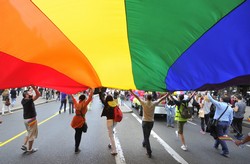The dynamics of the polarised lesbian, gay, bisexual and transgender rights debate in post-Yugoslav countries
LGBT activism receives significant media coverage. However, there is a noticeable absence of empirical research on the effects of this engagement on the lives of non-heterosexuals in former Yugoslavia. The EU-funded LGBTQYU ((Post-)Yugoslav LGBT activism: Between nationalism and Europeanisation) project bridged the gap in gender and sexuality research in the post-Yugoslav space. It did so by including LGBT people as sources of empirical data and promoting transnational research and activist cooperation. Researchers provided a historical account of the emergence, development and operation of LGBT activist groups. They examined the role of the EU and European integration processes in promoting LGBT initiatives in the region. Project partners also explored the extent to which LGBT activist organisations consider intersecting discriminations that some people may be exposed to. A 3-day workshop in 2015 that attracted 30 scholars and activists from the University of Amsterdam and all the former Yugoslav states led to two main outputs in the form of edited volumes. The first analyses the complex linkages between LGBT rights and European integration, and the implications for activists, citizens and officials. It greatly contributes to literature on activism in the post-Yugoslav space as well as LGBT activism overall. The second book offers insight into various forms of LGBT activist engagement in order to examine how the notion of intersectionality enters politics in modern-day Croatia and Serbia. This is the first such volume to bring systematic empirical accounts of trans, bisexual, asexual and queer activism to the fore. It also provides insight into the largely neglected links between homelessness, workers’ rights, urban-rural tensions and non-heterosexuality in the post-Yugoslav space. LGBTQYU exposed the mostly unknown history of LGBT engagement in the post-Yugoslav space from an interdisciplinary perspective. It also accounted for the emergence and development of LGBT activist groups, and the evolution of their politics, cooperation and conflicts. Gender and sexuality issues have been put higher on the regional social science research agenda as a result.







